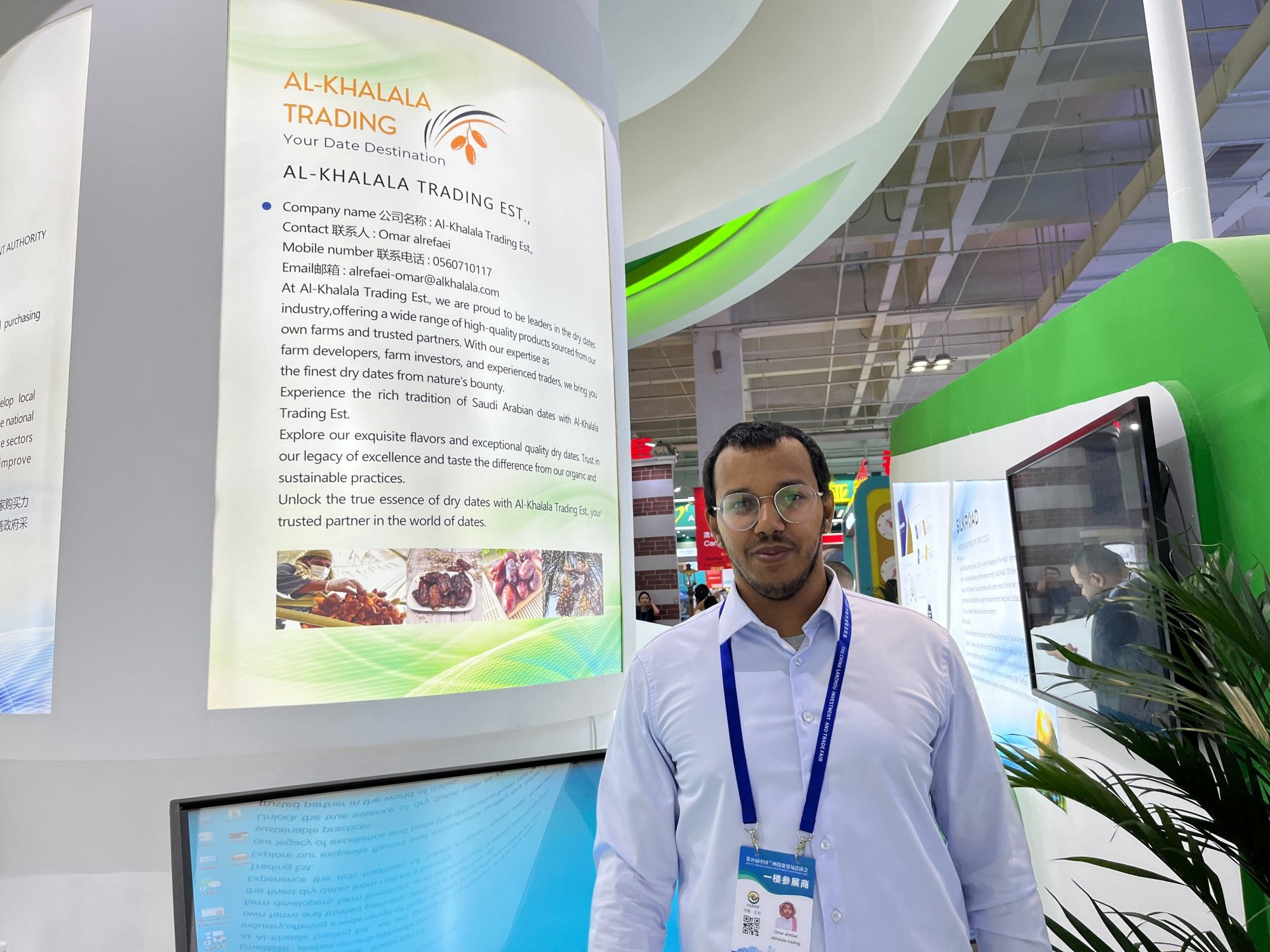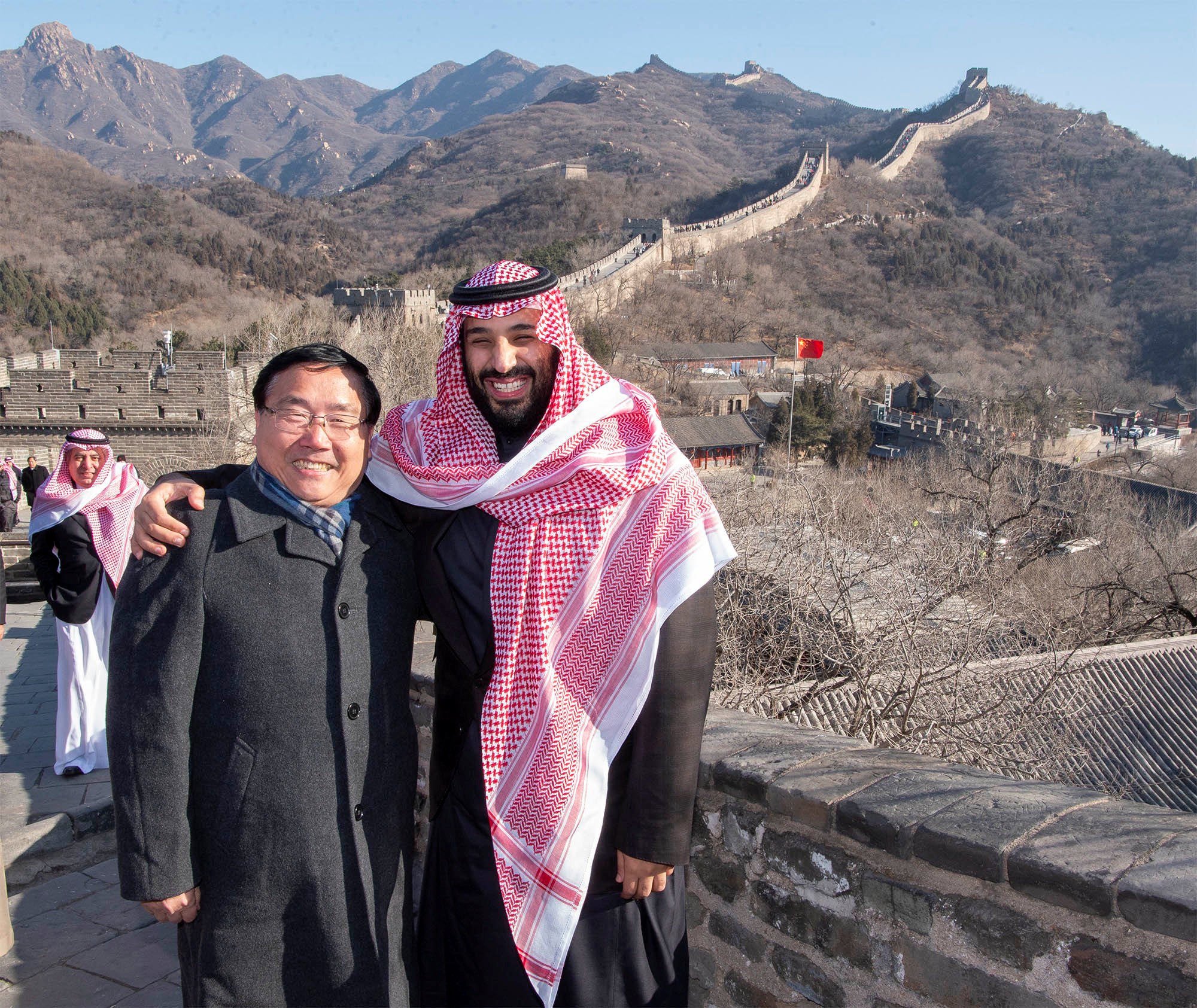
Saudi Arabian date exporter Omar al-Refaei once again set foot in China earlier this month, this time with higher hopes than his previous visit four years ago, as he looked to sell the traditional fruit into the world’s most populous market.
“I know, when Chinese think of Saudi Arabia, they only know [about] oil,” said Refaei, having flown over 5,500km (3,418 miles) from Riyadh to attend a trade fair in Lanzhou, the capital city of northwest China’s Gansu province.
“But we also have a lot of dates. No country can consume all of these, except for China,” added Refaei, who last visited China in 2019 but left empty-handed after failing to find an importer.
Do you have questions about the biggest topics and trends from around the world? Get the answers with SCMP Knowledge, our new platform of curated content with explainers, FAQs, analyses and infographics brought to you by our award-winning team.
Refaei was part of a Saudi Arabian government-led delegation, which included representatives from investment and energy departments, who had been invited to the five-day Lanzhou Investment & Trade Fair held at the start of July.
“I feel there has been more guidance, help and support from our government to help our business opportunities in China get bigger,” said Refaei.
Following President Xi Jinping’s state visit to Riyadh in December, China and Saudi Arabia have repeatedly described bilateral relations as being at “the best stage ever” amid their respective fraying relations with the United States.
Xi’s state visit saw US$50 billion of investment agreements signed, and a series of government to business level visits, as China opened up earlier this year after three years of its stringent coronavirus control policy.
Another US$10 billion of deals were also signed during June’s Arab-China Business Conference in Riyadh, covering technology, renewable energy, agriculture, real estate, minerals, logistics, tourism and healthcare.

By making Saudi Arabia a guest co-host, together with Thailand, for the annual Lanzhou trade fair, the Gansu government followed up on Beijing’s call to boost cooperation at a provincial level.
Ministers from both sides added that China and Saudi Arabia could find common ground in renewable energy and combating desertification, as the two share similar arid landscapes.
“Saudi Arabia is enthusiastic and ready to work with Chinese businesses interested in exploring the diverse opportunities within our borders,” said Saudi Arabia’s deputy investment minister, Saleh Ali Khabti, during the fair’s opening ceremony.
“I assure you, we have started creating a supportive environment for Chinese investors and businesses. We are excited to explore and forge new pathways of cooperation, not only in Lanzhou, but across China.”
Khabti added that Saudi Arabia was especially interested in collaboration in technology, renewable energy, infrastructure development and mining.
“We will need openness in our cooperation and we would like Chinese businesses to work with us on technology transfer and establish mutually beneficial joint ventures. We are eager to learn from Chinese expertise and learn success stories in various sectors,” he told a room of Chinese businessmen at the fair.
China has been Saudi Arabia’s largest trading partner for a decade due to energy shipments, while the Kingdom has been China’s largest trading partner in the Middle East since 2001.
Bilateral trade was worth more than US$106 billion in 2022, up by 30 per cent from the previous year, according to both governments.
Vincent Yan, the Greater China CEO of one of Riyadh’s largest conglomerates, Ajlan & Bros Group, said the surge in Chinese investment in Saudi Arabia in recent years has been unprecedented, and both sides have found new opportunities outside energy trade.
“Signals from the governments are very strong, and no matter private sector or state-owned companies, we are seeing soaring interests,” said Yan, who heads offices in Beijing, Shanghai, Shenzhen and Hong Kong.
Since the offices were established in 2017, Ajlan & Bros Group has established nine joint-ventures in sectors ranging from artificial intelligence, fintech, healthcare, industrial manufacturing to courier services.
Yan said the technology industry would remain one of key focuses of their investment, as their strategy would be coherent with Riyadh’s national development plan.

Ties between China and Saudi Arabia had started to heat up during a visit by Saudi Crown Prince Mohammed bin Salman in February 2019.
During the trip, the two sides agreed to “align” Xi’s Belt and Road Initiative development plan with Salman’s economic diversification blueprint, known as Vision 2030.
While Saudi Arabia has accumulated wealth from being a major crude oil exporter, Salman stressed the need for “innovation” and “modernisation” in his plan that would be a “transformative economic and social reform” for an economy that is heavily reliant on petroleum.
For China, the world’s biggest energy importer, Saudi Arabia has been one of its top suppliers, along with Russia.
But away from oil, Chinese firms have also recently been looking for new and growing markets after three years of a stagnant domestic economy that is yet to recover.
Tech companies, including Huawei Technologies and Alibaba Cloud, have also found themselves welcomed by Riyadh, in contrast to facing increased scrutiny on security issues from the West. Alibaba is the owner of the South China Morning Post.
In terms of traditional economic cooperation, riding on the growing economic links, Riyadh’s state-owned Saudi Aramco, the world’s top oil exporter, has announced two investment projects in China totalling 50 billion yuan (US$7 billion).
One includes a plan for Aramco and its Chinese partners to build a large refining and petrochemical plant in Panjin, Liaoning province, which was once reported to have stalled during the pandemic.
The other deal will see Aramco acquire a 10 per cent share of privately controlled refinery giant Rongsheng Petrochemical for 24.6 billion yuan.
The picture for cooperation, however, is not all rosy and bright across sectors.
Hesham Al-hojairi, the vice-president of Saudi Silk Road Industrial Services, said while there is a growing interest in cooperation and business, there are also challenges for firms to localise.
“I think part of it is cultural differences, and also to get talent,” said Hojairi, whose company provides business consulting services to investors on both sides.
“While we got some Chinese technology companies to set foot in Saudi Arabia, suitable local talent also needs to be recruited, and so this is also quite challenging and will require Chinese companies to do it ... [supply of] raw materials for some factories would also be one of the problems faced.
“Yet, I think these are not really big problems, we can solve them as long as there are more visits and communication.”

A Saudi Arabian attendee at the fair in Lanzhou said another challenge for economic cooperation was that many projects were heavily government facilitated, meaning small- and medium-sized enterprises would likely find it difficult to enter each other’s markets.
“We understand that for China, what it takes for the companies to work with us would be a push by the government, so sometimes it is not about how much we try to lure Chinese businesses to set up a factory in our country, but whether there was a greenlight by the Chinese government, especially because many of the sectors we are interested in are state-controlled,” said the person, who asked not to be identified as they are not authorised to speak to the media.
And for date exporter Refaei, who came to the trade fair with high hopes, he again left without being able to find a Chinese partner.
“Lanzhou seems like a small city. I think that there are not many big importing companies,” he said.
Refaei’s difficulty in finding partners was shared by Chinese businessman Su Han, the CEO of the Amin Bio Group, who was interested in finding opportunities in Saudi Arabia for his halal gelatin.
“I think in the end, this was not an area that was of immediate urgent interest for them right now,” said Su, who was invited to speak to Saudi government representatives at the Lanzhou fair.
Su said he was also invited to discuss prospects with Saudi ministries in 2019 during Salman’s visit.
“Now companies across sectors want to know whether their business would work in Saudi Arabia due to the positive narrative on economic and political ties,” said a Beijing-based Chinese academic, who asked not to be identified as they are not authorised to speak to the media.
“And after all, there are not many markets in the world that still have a young population and have money to spend like Saudi Arabia.
Beyond crude oil, is China the ‘ideal partner’ for Middle East development?
In Saudi Arabia, according to 2022 census data published in May by the General Authority for Statistics, 63 per cent of the 32.2 million population are aged under 30.
“But in reality, this also creates a lot of confusion for both sides because very few of them had experience with each other,” the academic added.
“This is the stage this is at right now, everyone thinks they want a piece of the cake, but they do not even know if they are suitable for it.”
More from South China Morning Post:
- Is China’s Greater Bay Area ‘the future of Asia’? Top Saudi diplomat says investors can bet on it
- China eyes Asean trade ties, but members fear ‘geopolitical trap’ as US also seeks regional influence
- China trade: 5 takeaways from June’s data as exports tumbled
- From AI to self-sufficiency: 5 things to know about a possible new US ban on investment in China
- US-China entering ‘valuable window of opportunity’ to deepen industrial ties, Beijing open to Gina Raimondo visit
For the latest news from the South China Morning Post download our mobile app. Copyright 2023.










































